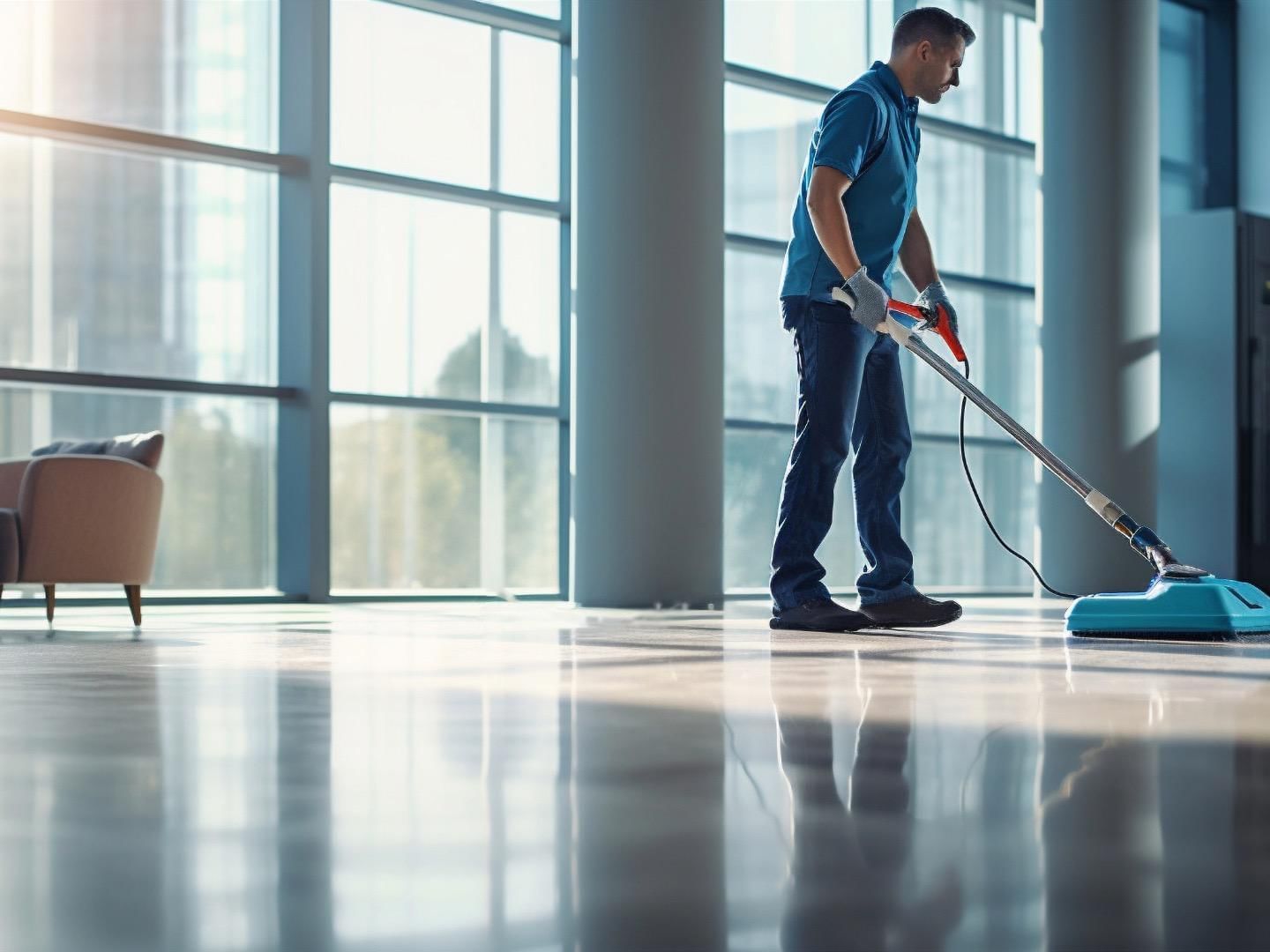
In today's fast-growing coworking environment, the importance of daily maintenance cannot be underestimated. These spaces, designed to foster collaboration, innovation and sharing, must offer a clean, healthy and welcoming environment. This is where the crucial role of a cleaning company comes into play, not only to maintain cleanliness but also to reflect the values of social and environmental responsibility cherished by coworking spaces.
The importance of a partnership aligned with values
Coworking spaces are more than just offices; they are a reflection of a community and its values. When choosing a cleaning company, it's essential to look for a partner who shares these values, particularly when it comes to CSR(Corporate Social Responsibility) commitments. Ecological, responsible cleaning then becomes a priority and a shared value.
Did you know that :
The French government has set numerical targets for the implementation of CSR policies in companies. These targets are as follows:
- 50% of companies with over 50 employees must have a CSR policy in place by 2025
- 75% of companies with over 50 employees must have a CSR policy in place by 2030.
To meet these targets, the French government is implementing a number of measures, including
- Raising companies' awareness of CSR issues
- Providing tools and resources for implementing CSR policies
- Supporting companies in implementing their CSR policies.
Companies that implement CSR policies benefit from a number of advantages, including
- Improved brand image
- Reduced costs
- Increased productivity
- Improved environmental performance
Ecological interventions, the heart of cleanliness
Modern cleaning companies, aligned with these principles, adopt environmentally-friendly practices. This includes the use of eco-labeled cleaning products, such as those certified by the European Ecolabel or Ecocert. These products, which are less harmful to the environment, also help to create a healthier workspace for coworking residents.
Did you know that :
According to MSI Reports' "Marché des Produits d'Entretien pour le Nettoyage Professionnel en France" study, the proportion of labelled professional cleaning products in France has risen from 20% in 2013 to 35% in 2022. This increase is due to several factors, including:
- Growing awareness of the environmental and health issues associated with cleaning products.
- The development of ecological and health labels recognized by consumers
- Initiatives by public authorities to promote labelled products.
The main labels for professional cleaning products in France are :
- Ecocert
- NF Environnement
- AFAQ Environment
- Hygiene and Health
Humanization and well-being of cleaning staff
The humanization of cleaning services is another essential pillar. This means offering cleaners fair, stable working conditions and job security through permanent contracts. The well-being of these agents is crucial, as satisfied and valued staff are synonymous with quality service. What's more, agents trained in eco-responsible gestures can act as ambassadors of good practice within flexible office spaces.
An assigned agent: a culture of partnership
Assigning one or more maintenance staff to a specific coworking space encourages the creation of a solid partnership. This approach enables agents to develop an in-depth understanding of the specific needs of the space and its residents, guaranteeing more personalized and efficient services.
Shared responsibility: best practices for residents
The cleanliness and maintenance of coworking spaces is not just the responsibility of the cleaning company. Residents also play a crucial role. In shared spaces such as meeting rooms, catering areas and washrooms, it's important toadopt responsible behavior. This includes:
- Respecting shared spaces: Keeping work and rest areas clean and tidy.
- Report problems promptly: Help the cleaning company by reporting any problems or maintenance needs.
- Reduce and sort waste: Use reusable cups or mugs, sort waste and minimize the use of single-use plastics.
Did you know that :
The introduction of waste sorting in France has significantlyincreased waste recycling capacity. By 2022, France had achieved a recycling capacity of 67%, compared with 52% in 2013.
This increase is due to several factors, including:
- The development of sorting and recycling infrastructures
- Raising public awareness of waste sorting
- The introduction of new recycling channels.
The main types of waste recycled in France are :
- Paper and cardboard
- Glass
- Metals
- Plastic
In conclusion, choosing a cleaning company for a coworking space goes far beyond simple cleanliness. It's about finding a partner who shares the values of social and environmental responsibility, and who actively contributes to creating a healthy and stimulating working environment. By adopting environmentally-friendly practices, valuing the well-being of cleaning staff and encouraging residents to adopt responsible behaviors, coworking spaces can not only maintain their cleanliness, but also reinforce their commitment to a sustainable and responsible future.
-
The code has changed: the new dress code for workspaces

29/12/2025 The code has changed: the new dress code for workspaces
Ties have disappeared from open spaces. Strict suits have given way to white sneakers. And in some offices, the hoodie has become as much a sign of authority as a cashmere sweater. Welcome to 2025, where professional dress codes are evolving as fast as the way we work. Between remote working, coworking, flex office and changing corporate cultures, the dress code as we've known it is undergoing a silent but very real revolution. Behind the fabrics and cuts, a new social grammar is taking shape.
-
It's Tiiiiime! Is it still necessary to celebrate Christmas in the office?

08/12/2025 It's Tiiiiime! Is it still necessary to celebrate Christmas in the office?
Between tradition, new workspaces and the quest for collective meaning. Every December, the same question resurfaces: should Christmas still be celebrated in the office? Long a symbol of conviviality and cohesion, the traditional Christmas potluck seems to be losing its lustre. Hybrid working, the dispersal of teams and the transformation of workplaces are shaking up codes. While some continue to erect the Christmas tree in the reception area, organize secret santa parties or initiate bauble-making workshops, others are wondering whether this ritual still has a place in an age when the boundary between the personal and professional spheres is blurring.
-
Executive mental health: the blind spot of performance

13/10/2025 Executive mental health: the blind spot of performance
They decide, arbitrate and steer. They embody vision, manage crises and take risks. And yet, we still talk too little about their vulnerability. The mental health of managers is a subject that is often ignored, almost taboo.